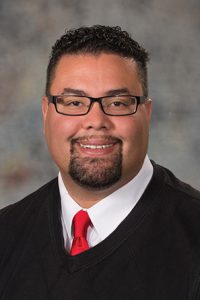Amendment would tie street car funds to affordable housing
Omaha would gain $100 million in state funds toward its proposed streetcar project and could use development revenue for affordable housing under an amendment considered by the Urban Affairs Committee March 21.

Sen. Justin Wayne of Omaha brought the amendment to the committee, which would be attached to LB532, a tax increment financing bill sponsored by Omaha Sen. Terrell McKinney. As introduced, the amendment would appropriate $100 million in general funds in fiscal year 2023-24 to provide assistance to a metropolitan class city to establish, maintain and operate a streetcar within 2.5 miles of a major airport.
Omaha currently is the state’s only metropolitan class city and has approved a plan to create a streetcar system related to redevelopment and construction of Mutual of Omaha’s downtown headquarters.
Wayne’s proposal also would amend the state’s Community Development Law to deem certain affordable housing — defined as single-family or condominium housing used as primary residences for those with annual incomes below the area median — to be related to the redevelopment even if not located on the redevelopment site as long as the housing supports the activities of the redevelopment plan.
The amendment also states that the city and the streetcar authority would make “best efforts” to allocate not less than 30 percent of excess revenue above what is needed to pay off TIF bonds to qualifying affordable housing during each fiscal year that funds are available. In the selection process, first priority would be given to “financially viable” projects that serve the lowest income occupants for the longest period of time.
Under current law, proceeds can be used only to pay off TIF bonds early.
Wayne said he initially opposed the streetcar project in Omaha, but decided that the best option was to find a way to attach affordable housing requirements and expand the line to also serve North and South Omaha.
“We’re talking about an investment that could fundamentally change this community and … create a sustainable way that we can fund affordable housing without having to rely on state dollars,” Wayne said.
Requiring the city to use some of the revenue generated from the estimated $1 billion in development along the streetcar line for affordable housing would further the goal of creating generational wealth in long-neglected areas of Omaha, he said.
“The only way to close the wealth gap is through equity,” Wayne said. “The one thing we didn’t want to do is create more landlords to just create more profits.”
Jennifer Taylor, Omaha assistant city attorney, testified in favor of the proposal, saying the city supports the effort to extend the streetcar line to North and South Omaha. Wayne’s amendment would help the city fill the gap between the revenue the streetcar project would generate and what it would cost Omaha to extend the line.
“We have always stated that we would build these lines with the development that comes from the line and not from any [city] general fund taxpayer dollars,” Taylor said.
No one testified in opposition to the amendment and the committee took no immediate action on it.

